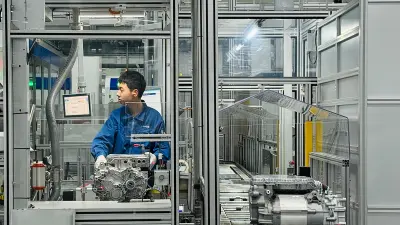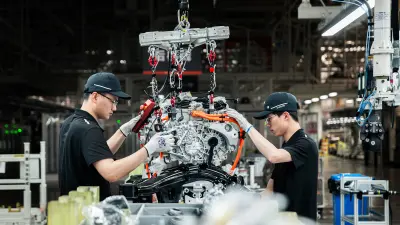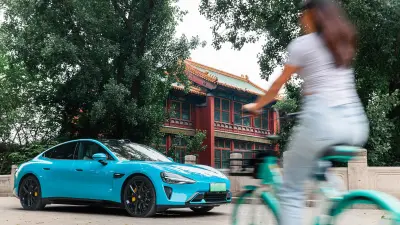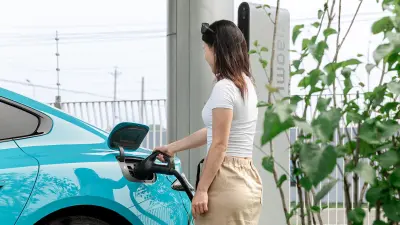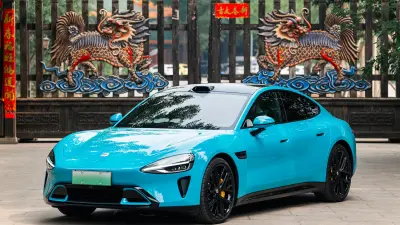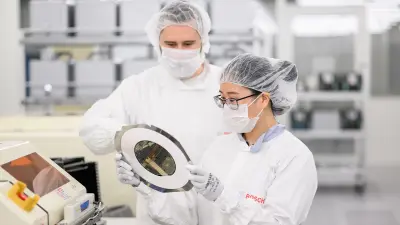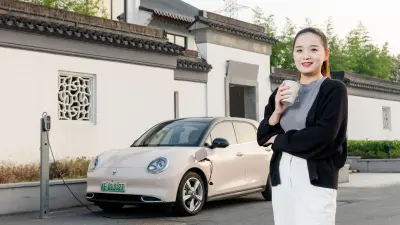In the fast lane
Boost for electromobility in China
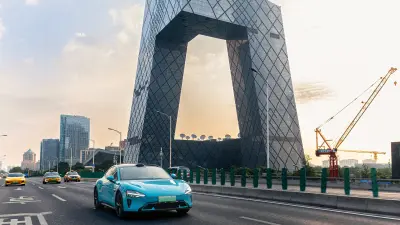
Skyscrapers, modern high-speed trains, multi-lane roundabouts: Urban traffic in Chinese metropolitan cities is an experience. Despite the backdrop and the hustle and bustle in the busy streets, the many cars with green license plates catch the eye. They are all battery-operated. Electromobility has gained ground at lightning speed in China. The country is the world’s largest market for electric vehicles.
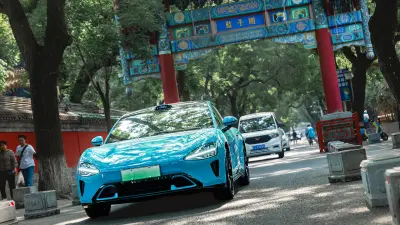
“One in four new cars in China is currently powered by batteries, and by 2035 it is expected to be one in two,” says Weiliang Wang, President, Bosch Mobility Board China. He’s standing in front of a large window in his office at the Wuxi site looking out at the traffic. Emission-free mobility is on the rise in China. Electromobility is to help achieve the government’s goal of net zero by 2060. “The required infrastructure is being rolled out rapidly and battery-powered cars are available at affordable prices and without waiting times,” says Wang, explaining the push for electromobility.

One in four new cars in China is currently powered by batteries, and by 2035 it is expected to be one in two.
Competitors are not asleep
New car manufacturers are increasingly entering the market in China and competing with international players. A new brand, previously known for other products, has recently appeared on the streets of China: Xiaomi, the third largest smartphone manufacturer in the world. At the end of March, the company presented the “SU7”, its first electric vehicle, an E-segment luxury technology sedan. “Today’s customers are looking for much more than a vehicle to get from A to B. Connectivity, autonomous driving and infotainment are playing an increasingly important role,” explains Zhenyu Huang, responsible for production, supply chains and procurement at Xiaomi’s mobility division.
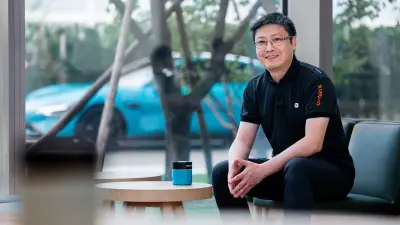
This is shifting dimensions. At the turn of the century, electronics made up about 20 percent of a car's total cost. However, nowadays, this figure has surged to approximately 40 percent with forecasts suggesting it will account for half of the total price of a new car by 2030. This is causing a sustained shift in the automotive market. “And this is exactly where we come in,” comments Zhenyu Huang, Vice President of Xiaomi EV. “Xiaomi has accumulated years of experience in the electronics business and in programming operating systems. Both are fundamental not only for smartphones, but also for connected cars.”
Xiaomi’s first electric vehicle on the streets of Beijing
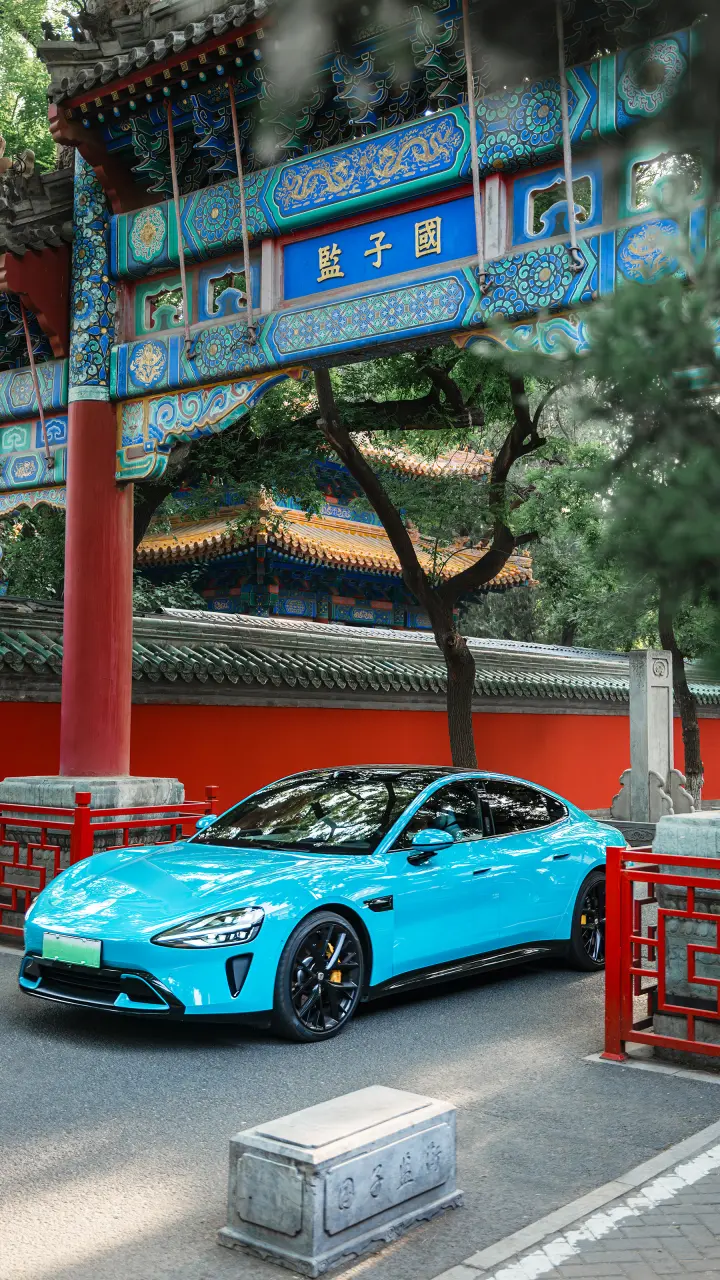
Loading the video requires your consent. If you agree by clicking on the Play icon, the video will load and data will be transmitted to Google as well as information will be accessed and stored by Google on your device. Google may be able to link these data or information with existing data.
Offering solutions for assisted driving
In addition to its experience in digital networking, Xiaomi has set up its own artificial intelligence (AI) lab. More than 3,000 engineers are working there to make software and hardware even more intelligent. This gives Xiaomi advantages — for example in automated driving. “We develop cameras and sensors for smartphones and are experts in image processing. This is also essential for assisted driving.” Xiaomi is committed to offering customers solutions earlier than other car manufacturers. He also explained that software alone is not enough to launch a good car. “Basic functionalities such as performance, driving dynamics and mechanical quality have to be spot on,” notes the supply chain head.
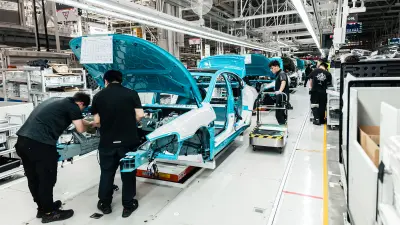
Xiaomi is therefore not only focusing on its software offering, but is also investing in efficient vehicle production: The company hired engineers from the automotive industry when Xiaomi’s automotive division was established in September 2021 and now employs about 3,000 people in the field of electromobility. This year, more than 100,000 cars are to roll off the production line at the new plant. Series production started at the end of March. Xiaomi produces the required batteries on its own production workshop.
With Bosch as a partner
Xiaomi has ambitious goals: The company aims to be one of the five largest car manufacturers in the world within 15 to 20 years. The vehicle manufacturer cooperated with selected partners and suppliers — including Bosch. Some key Bosch components are being used in Xiaomi’s first car model: From the decoupled braking system to the battery management system for monitoring voltage, current and charge status of the batteries to the 400V eAxle with silicon carbide technology as the heart of the electric drive.
“Bosch has decades of experience in the automotive sector, in dealing with data and in China embodies quality, innovation and reliability,” explains Huang. “Finding the most efficient way to calculate the load on an eAxle is integral to the art of engineering. And this is where we rely on Bosch.” Xiaomi plans to expand its collaboration with Bosch to other products and solutions in the future. Bosch has formed partnerships with nearly all major Chinese car manufacturers, and Xiaomi is the latest addition to the list.
Developing products locally
Bosch is the market leader in electromobility for cars in China. Thanks to the high sales of electric cars and the trend towards greater local standardization, electromobility in China is already paying off for Bosch, explains Weiliang Wang and explains the prospects: “The demand for electric and electronic architectures and software-defined vehicles is increasing.” Customers demand flexibility, speed in development and proven drive technology. This is what Bosch offers. “Individualization and standardization are not a contradiction in terms for us.” If you want to be successful globally with electromobility, you have to master both.
China is an important market for Bosch. The company generates around 20 percent of its total global sales in China, with 80 percent, 15 billion euro out of total 18 billion China sales are from mobility business. “We want to further strengthen Bosch’s footprint in the Chinese market and support the local automotive industry with innovative solutions and services,” outlines Wang. Against this backdrop, a new plant for the production of core components for electromobility is being built in Suzhou near Shanghai to better meet local demand, with Bosch investing around one billion euros locally. “Bosch is also increasingly developing innovations directly in China. One example of this is a new electronic braking system for commercial vehicles,” explains Wang. “It is an important step for a global company like Bosch to be able to develop local solutions.”
